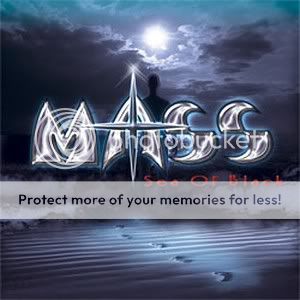What is there to say about Harem Scarem? Their first three albums rank among the finest melodic rock releases of the early nineties. Occasionally, their lyrics ended up somewhat cryptic (and for that, read nonsensical), but among their band members they featured a first rate guitarist in Pete Lesperance and in Harry Hess, they had a top class vocalist. However, by the time of their fifth album, 1998’s ‘Big Bang Theory’ (rather confusingly issued with differing tracklistings in Canada and Japan), Hess’s vocals began to sound a little forced and their material wasn’t as instant as it once had been. Harem Scarem continued to release albums up until their 2009 break up, but despite each one containing some good material, none were as consistent as the band’s early work.
In 2010, Harry Hess teamed up with Khymera/Pink Cream 69 bassist Dennis Ward forming the core of First Signal, a band which ought to appeal to fans of Harem Scarem’s classic early work. This is clear from the opening bars of ‘This City’ which opens with an attention-grabbing lead guitar courtesy of Michael Klein, whom although not quite up there with Pete Lesperance, does his best to fill the album with enough guitar showboating to keep Scarem fans happy. While Hess’s vocal style isn’t quite as strong as it was back in the early nineties, he still contributes a decent performance here (as good as his performances on his 2003 solo outing ‘Just Another Day) and regarding the song, its chorus is very strong indeed. If you came looking for a bit of the old-style Harry Hess magic, you’ll find it here in abundance.
‘When You Believe’ follows in a similar vein with another top chorus, but it’s Eric Ragno’s keyboard fills which give the track it’s best quality. Although I’m a fan of 80s style stabbing rhythmic keyboards, Ragno’s rather more accomplished fills are really classy (in an 80s rock way, naturally), with their shiny edges. The upbeat ‘Into The Night’ provides plenty of bounce and Hess turns in a natural performance; here, Klein’s guitar work is rather more understated, his solo far simpler than he could have managed and in contrast to ‘When You Believe’ Ragno’s keys sound buried in the mix. Despite the production here not being quite as sharp as it could’ve been, it doesn’t detract too much from the song.
The title cut is a solid rocker, opening with muti-tracked guitars. Punchy without being heavy, it’s a timely reminder of what made Harem Scarem great back in the early 90s. Klein alternates effective staccato guitar work with some decent fills, before launching into another effortless solo (even if a little short). The chorus utilises some classic sounding harmony vocals, making it another track which ought to please fans of this style of melodic rock. ‘Feels Like Love This Time’ taps into a mid-paced, classic 80’s style radio-rock. Sure, you’ve heard it all a thousand times, but it’s hard to ignore when done well – and had this been written earlier and passed into the hands of Bryan Adams or Def Leppard, it could’ve been huge. Great to hear the mix of electric and acoustic guitars here and while Hess’s vocal sounds slightly ragged, the end result makes this one of the album’s best tracks.
The mid-paced ‘When November Falls’ features some decent staccato guitar work during the verses, before launching into a chorus which is gentle and simple. Despite sounding a little over familiar, it still manages to be effective thanks to great song writing. It’s been said elsewhere that this may have suited John Waite…and hearing it, it’s not difficult to understand why. If you’re a Scarem fan, ‘Yesterday’s Rain’ is a three and half minute snapshot of why you need this album. With verses dominated by Michael Kline’s hard and rhythmic chords, this paves the way for a solid pre-chorus, before the band hits the listener with a harmony-filled chorus which could have easily been a left-over from the sessions for Harem Scarem’s 1991 self-titled debut. Hess and the rest of the band are on good form, but it’s the great song writing matched with uncomplicated arrangements and harmonies which gives the track its greatest strength.
First Signal haven’t released this album with any dreams of being contemporary. It’s the work of musicians who love what they do and do it extremely well. In short, this First Signal album is the closest anyone associated with Harem Scarem has come to recreating the consistency of the band’s early releases.
September 2010





